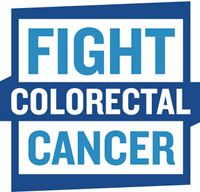Screening Saves: Know Your Options And Talk to Your Doctor
On March 21, at 9 PM EST, the #CureConnect tweetchat will be focusing on screening and prevention. Sharyn Worrall, Patient Education Manager for FightCRC will be comoderating on this topic, which is especially important for colorectal cancer.
Screening Saves: Know Your Options And Talk to Your Doctor

Colorectal cancer is the second leading cause of cancer death among men and women combined. The good news is that colon and rectal cancers can be prevented or detected in early stages when it is the most curable. Unfortunately, one in three adults over age 50 is not being screened for colorectal cancer. This is due to a number of reasons, including but not limited to, thinking screening is only for people with pain or other symptoms, worry about cost and fear of the screening procedure. Over 23 million people 50 and over need to be screened. Colorectal cancer screening can be life-saving, so don’t put it off!
Risk of Colorectal Cancer
When it comes to colorectal cancer screening, it’s important to distinguish “average risk” versus “higher risk.” Medical guidelines suggest for average risk patients, screening begins at age 50. Some guidelines recommended screening begin at age 45 for African Americans. For those with higher risk, which include those with a family history of colorectal or other cancers or have another condition that could increase their risk, should talk to their doctors about being screened at an earlier age.
In addition, colorectal cancer incidence rates are rising in young and middle-aged adults, including people in their early 50s. If you are under age 50, it is essential to call your doctor if you are experiencing signs and symptoms of colorectal cancer and to talk to your family to know if you have a family history of colorectal cancer. These things could increase your risk and affect your screening schedule.
Signs and Symptoms
Some of the signs and symptoms of colorectal cancer include the following, however, some people do not have any signs or symptoms. This is why it’s important to get screened, even if you don’t have any of the symptoms below because oftentimes signs and symptoms only appear when colorectal cancer has grown into late-stage cancer or spread to other organs.
- An ongoing change in bowel habits (diarrhea, constipation, or feeling that the bowel does not empty completely)
- Stools that are narrower than usual
- Blood (either bright red or very dark) in the stool (poop)
- Rectal bleeding
- Frequent gas pains, bloating, fullness or abdominal cramps
- Weight loss for no known reason
- Feeling very tired (weakness and fatigue)
Types of CRC screening:
Screening colonoscopy is considered the ‘gold standard’ of colorectal cancer screening because it allows a doctor to view the entire colon (including the rectum) in a process that makes it easy to remove any polyps, which may be pre-cancerous. Colonoscopy requires “prep” which is a process that clears out the contents of your bowel — you will need to stay near a bathroom. The prep is a necessary step to the procedure because it allows the doctor to clearly see the colon and rectum and identify whether or not there are polyps.
For some, colonoscopy may not be the best option. CT Colonography (otherwise knowns as, “virtual colonoscopy”), fecal immunochemical test (FIT), Fecal Occult Blood Test (GFOBT), Flexible Sigmoidoscopy, and Stool DNA tests are available and can be used for early detection of colorectal cancer, though they will need to be done more often than colonoscopy. Talk to your doctor about these options to see if they are a good fit for you.
Sixty percent of colorectal cancer deaths could be prevented with screening. It is imperative to start talking to your doctor about screening before you turn 50 so that you don’t fall behind schedule or discover the need for an earlier screening age due to family history. Talk to your family to learn about your family health history and relay that information to your doctor. Colon and rectal cancers can be prevented or detected in early stages! To learn more about the screening guidelines, visit the US Preventive Services Task Force website or Fight Colorectal Cancer.
Tonight, March 21, at 9 PM EST, Oncology Nursing News and CURE magazine will team up with co-moderator Sharyn Worrall of Fight CRC to discuss screening and prevention for all cancer, including CRC. Be sure to join us!
Shared Model of Care Post-HCT Offers Safe Follow-Up, Reduces Patient Burden
Published: March 19th 2025 | Updated: March 19th 2025Alternating post-HCT care between specialized facilities and local cancer centers produced noninferior non-relapse mortality and similar quality of life to usual care.



